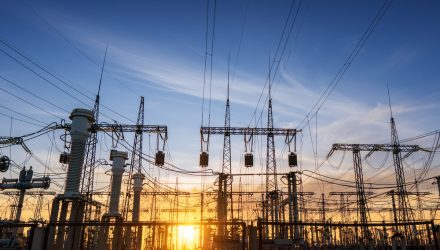Summary
- Given strong performance this year and attractive yields, many investors may be considering an energy infrastructure allocation for the first time or the first time in years.
- For new, prospective, and seasoned energy infrastructure investors, today’s note addresses several frequently asked questions.
- Topics include tax considerations, the January effect for MLPs, oil correlations, and midstream’s role in an evolving energy landscape.
Given strong performance this year and attractive yields, many investors may be considering an energy infrastructure allocation for the first time or the first time in years. Indeed, in a midstream webcast earlier this month (recapped here), participants were asked to describe their ownership of the midstream/MLP space. Just over 16% of respondents said they had never owned energy infrastructure investments, and 14.3% indicated that they had allocated within the last year. For new, prospective, and seasoned energy infrastructure investors, today’s note addresses several frequently asked questions from perennial inquiries about K-1s to more timely questions about the January effect for MLPs and midstream’s role in an evolving energy landscape.
Does the broad investor focus on ESG and evolving energy landscape threaten midstream valuations over time?
Midstream companies have made significant improvements with their ESG reporting, and many have announced emission reduction targets. Multiple companies even have net-zero emission targets, including DT Midstream (DTM), Enbridge (ENB CN), EnLink (ENLC), TC Energy (TRP CN) and Williams (WMB). While prioritizing ESG-related issues, companies are also positioning for a cleaner energy future. The ability to move and store energy will be an asset for years to come, and midstream has a role to play as energy sources gradually change over the coming decades. Household names in the energy and renewable sectors have announced partnerships with midstream companies focused on carbon capture, hydrogen, and renewable fuels. Watch this 30-minute LiveCast or check out this recent note for more context.
What is the correlation between midstream/MLPs and West Texas Intermediate (WTI) oil prices? What about a correlation to natural gas prices?
Five- and ten-year correlations between WTI and the Alerian MLP Infrastructure Index (AMZI) are just over 0.5. The correlations between WTI and the Alerian Midstream Energy Select Index (AMEI) are just slightly higher at 0.55. The correlations with natural gas for both are much lower at ~0.2. The seasonality of natural gas tends to limit the usefulness of correlation data between midstream/MLP equities and the commodity.
Will I receive a K-1 if I invest in an MLP exchange-traded fund (ETF) or exchange-traded note (ETN)?
No. The key advantage of accessing MLPs through an ETF or ETN is that investors receive diversified MLP exposure in one product that issues a Form 1099. Investors will receive a K-1 if they directly own individual MLPs. Read more
What is UBTI and do I need to worry about it with MLP investments in retirement accounts?
Unrelated Business Taxable Income (UBTI) is the income that can trigger Unrelated Business Income Tax (UBIT) for tax-exempt organizations and retirement accounts. In other words, UBTI is income that could be taxed for an otherwise tax-exempt entity. Employee benefit plans and Individual Retirement Arrangements (IRAs), including traditional, SEP, SIMPLE, Roth or Coverdell IRAs, are subject to the tax on unrelated business income. Owning individual MLPs in a tax-exempt account could result in UBTI and could incur taxes if UBTI exceeds the $1,000 deduction amount. Investors that own MLP ETFs in tax-exempt accounts do not have to worry about UBTI, though it can be suboptimal to own MLP-focused ETFs in tax-advantaged accounts. Read more
Is there a January effect for MLPs?
Maybe. The Alerian MLP Infrastructure Index (AMZI) saw positive performance for the month of January in 10 of the last 15 years as shown below. In four of those years, the AMZI saw double-digit percentage gains during January (2009, 2013, 2019, and 2022). In the past, the January effect could have been attributed to tax-loss selling towards the end of the year, and investors returning in the new year. With MLP gains this year and no losses to harvest, that could mute the January effect, though that certainly was not the case for January 2022 after a strong 2021. While not predicting January 2023 performance, weakness seen thus far in December could help set the stage for a January rebound.
AMZI is the underlying index for the Alerian MLP ETF (AMLP) and the ETRACS Alerian MLP Infrastructure Index ETN Series B (MLPB). AMEI is the underlying index for the Alerian Energy Infrastructure ETF (ENFR) and the ALPS Alerian Energy Infrastructure Portfolio (ALEFX).
Related Research:
How Midstream is Positioned for Continued Growth
Energy Infrastructure LiveCast Series: ALPS and VettaFi Drill Into What Clean Energy Means for Midstream
Midstream/MLPs Continue Advancing Clean Energy Initiatives
MLPs, UBTI, ETFs, and IRAs: What You Need to Know
Beyond the K-1: Tax Treatment for an MLP Fund


